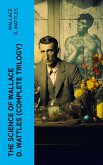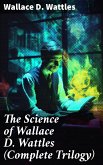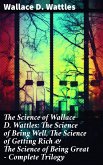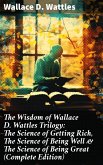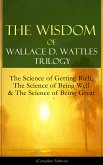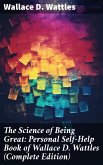In 'The Science of Wallace D. Wattles (Complete Trilogy)', Wallace D. Wattles presents a compelling exploration of the power of positive thinking and the science behind achieving success. Through a blend of philosophy, psychology, and practical advice, Wattles guides readers on a transformative journey towards personal fulfillment and abundance. The trilogy delves into the principles of the Law of Attraction, creative visualization, and the importance of developing a success mindset, all written in a straightforward and accessible style that resonates with readers seeking to improve their lives. Wattles' literary work serves as an inspirational guide for those looking to harness the power of their thoughts and beliefs to manifest their desires and create a life of wealth and happiness. The book's timeless wisdom continues to influence readers seeking to unlock their full potential and live a life of purpose and prosperity.
Dieser Download kann aus rechtlichen Gründen nur mit Rechnungsadresse in A, B, BG, CY, CZ, D, DK, EW, E, FIN, F, GR, H, IRL, I, LT, L, LR, M, NL, PL, P, R, S, SLO, SK ausgeliefert werden.



